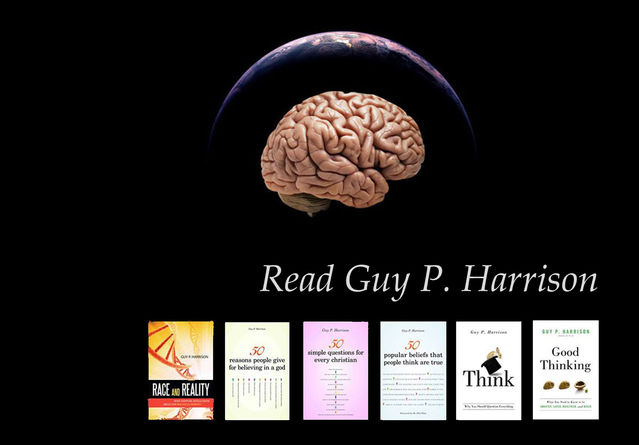Spirituality
How to Talk About Religious Beliefs Without Sounding Silly
Plural is proper in light of the real religious landscape
Posted June 26, 2015
Do you believe in God or are you an atheist?
This simple question is anything but. Asked countless millions of times in countless millions of places, it packs a surprising amount of misinformation, ignorance, and insult into a mere ten words. No one should even attempt to answer such a confused and prejudicial question without first running through a few statements and questions such as these:
- Why did you only ask about one god when, according to other religious people, there are millions more up for consideration?
- Believing or not believing in one god doesn’t determine if one is an atheist. An atheist is someone who does not believe in any gods. A person’s position on the one particular god that you find compelling doesn’t answer the question.
- Posing a question that suggests that only your one god is relevant at best ignores and at worst insults billions of people who believe in another god or gods.
- Anyone who wishes to attempt to have a sensible and honest discussion about religious belief in general must discuss gods in the plural because there never has been a time in the last several thousand years when there were not multiple gods believed in by people.
- What if I were to ask you this: Do you believe in Vishnu or are you an atheist? Wouldn’t that seem like a prejudicial or just plain silly question?
Talking broadly about religion and belief in the context of a singular and particular god is standard operating procedure in the West. It is also wrong. It assumes that millions of Hindus and animists do not exist or matter, for example, and it assumes that billions of other religious believers did not exist in the past. Specific references to a specific god are correctly singular, obviously. Yahweh is singular. Allah, is singular. Jesus is singular. (Well, except for that Holy Trinity thing. But that’s another discussion) Daily we can hear and read bizarre statements and questions from people in news media who seem to think they are being global and rational. To date no one has disproved the existence of all gods other than the Jewish/Christian/Islamic one. They deserve a seat at the table of thought, too.
Pretending that only one god matters sends the not-so-subtle message that monotheism is so obviously correct that only one god is worthy of acknowledgment and consideration. Most nonbelievers are no better than believers on this. Many atheists who think they have religion all figured out get this simple point wrong over and over again when they tangle with believers. They will debate and discuss endlessly the singular god concept, apparently never once realizing that within the first seconds of the encounter they had yielded 99.999 percent of the battlefield by failing to ask the person to acknowledge that god belief is profoundly bigger than one god. The believer is allowed to evade a confrontation with our nature, that we are a god-creating species. It’s one of the things we do best and recognzing this can promote rational thinking about religious belief.

Religious education being what it is in most schools, perhaps people just don’t know what the real religious landscape looks like. So, for anyone who hasn’t heard, many hundreds of thousands of religions have claimed the existence of many millions of gods. Throughout history and deep into our prehistory, people have declared that a staggering number and variety of gods exist. Since most gods are supposed to be immortal we can’t fairly dismiss them even if the religion behind them fades or goes extinct. So what if nobody worships Tiamat, the Mesopotamian goddess of the ocean and creation, anymore? She might still be hanging around somewhere in the universe. I don’t believe she is, but I certainly can’t prove that she’s not. And neither can the people who talk as if there is only one god to consider when the topic is general belief.
For those who imagine that everyone “really believes in only one god, the real god, they just express it differently”, I can assure you that this is not the case. I have spoken with Hindus in India and Nepal about this. I heard again and again that the gods they believe in are distinct and unique, definitely not different faces of a single god. Millions of animists today believe in millions of spirits/gods as well. Don’t all these people count as believers worthy of inclusion when talking about belief? Are their claims somehow less credible than that of the western monotheist?

To be clear, this issue has nothing to do with the question of whether or not any particular god or gods exist. I’m not challenging anyone’s beliefs here. I’m only pointing to a lame grammatical and thought habit that springs from confused thinking about religious belief. Consider this a math lesson: More than one equals plural. I’m sure reasonable people don’t want to sound uninformed or blindly prejudiced when talking about religion. No well-meaning person wants to callously ignore or disparage the sincere beliefs of literally billions of living and dead people, right?
Specific references to the Jewish/Christian/Islamic god or to some vague but solitary “supreme being” would still be in the singular, of course. But all other generalized religious references need to reflect the fact that there are numerous gods on the table worthy of acknowledgement.
Anyone still having difficulty recognizing how nutty, rude, and wrong it is to constantly speak about general religious belief in the context of only one god may benefit from imagining how it would seem if virtually every general discussion about automobiles referenced only the Subaru Outback, as if no other types of vehicles exist or ever existed. Think how weird it would be if politicians and news media people talked and wrote about cars in the same twisted way they do religious belief:
- “Government announces new national speed limits for the Subaru Outback.”
- “New report out on risks associated with Subaru Outback driving while drunk.”
- “Good news for Subaru Outback drivers, gas prices expected to drop.”
- “Is LA’s Subaru Outback traffic causing still causing too much smog?”

Wouldn’t such headlines be as ridiculous as they are inaccurate and misleading? But how different would they be from the real headlines we see from the BBC, CNN, the New York Times, and so on that always frame news, discussions, and debates in the context of a single god? Perhaps if we could all speak and write more accurately and honestly about belief in gods we could begin to think more rationally about them. It certainly couldn’t hurt. Just remember, regardless of what one believes or does not believe, plural is proper when talking in general about religious belief.
–Guy P. Harrison is the author of five books that promote science and reason. His latest is Think: Why you should question everything.





